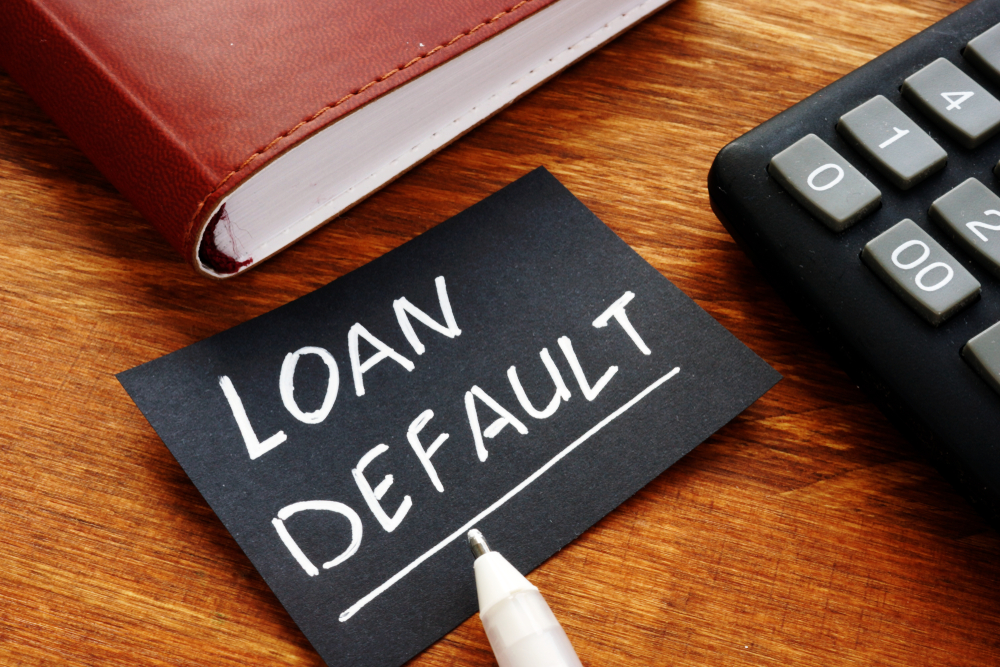
Are you drowning in a sea of debt, juggling multiple payments each month? You’re not alone. Millions of Americans find themselves in similar situations, struggling to keep up with various credit card bills, personal loans, and other financial obligations. But there’s hope on the horizon: personal loan consolidation. This comprehensive guide will walk you through everything you need to know about consolidating your debts and regaining control of your financial future.
Understanding Personal Loan Consolidation
Personal loan consolidation is a financial strategy that involves taking out a new loan to pay off multiple existing debts. This approach simplifies your finances by combining several payments into one, often with a lower interest rate and more favorable terms.
Benefits of Debt Consolidation
- Simplified Finances: Instead of managing multiple due dates and payments, you’ll have just one monthly payment to remember.
- Potential Interest Savings: If you qualify for a lower interest rate, you could save money over time.
- Fixed Repayment Schedule: Many consolidation loans offer fixed terms, helping you plan your payoff date.
- Improved Credit Score: By making regular, on-time payments on your consolidation loan, you may see a boost in your credit score.
Comparing Top Personal Loan Consolidation Options
To help you make an informed decision, we’ve compiled a comparison table of some of the leading personal loan consolidation providers in the United States:
Lender | APR Range | Loan Amounts | Loan Terms | Origination Fee | Min. Credit Score |
|---|---|---|---|---|---|
SoFi | 6.99% – 22.23% | $5,000 – $100,000 | 2-7 years | None | 680 |
LightStream | 5.73% – 19.99% | $5,000 – $100,000 | 2-7 years | None | 660 |
Upstart | 6.5% – 35.99% | $1,000 – $50,000 | 3-5 years | 0% – 8% | 600 |
Prosper | 7.95% – 35.99% | $2,000 – $40,000 | 3-5 years | 2.41% – 5% | 640 |
Marcus by Goldman Sachs | 6.99% – 24.99% | $3,500 – $40,000 | 3-6 years | None | 660 |
Note: Rates and terms are subject to change. Always check with the lender for the most up-to-date information.
Steps to Consolidate Your Debts
- Assess Your Debt Situation: Make a list of all your debts, including balances, interest rates, and monthly payments.
- Check Your Credit Score: Your credit score will play a significant role in determining your eligibility and interest rate for a consolidation loan. You can check your credit score for free through sites like Credit Karma or AnnualCreditReport.com.
- Research Lenders: Use comparison sites like NerdWallet or Bankrate to explore different lenders and their offerings.
- Get Pre-qualified: Many lenders offer pre-qualification with a soft credit check, which won’t affect your credit score. This can give you an idea of what rates and terms you might qualify for.
- Compare Offers: Look at the APR, loan terms, fees, and any additional features or benefits offered by each lender.
- Apply for the Loan: Once you’ve chosen a lender, submit a formal application. Be prepared to provide documentation such as proof of income and bank statements.
- Use the Loan to Pay Off Existing Debts: If approved, use the funds from your new consolidation loan to pay off your existing debts immediately.
- Set Up a Repayment Plan: Establish a budget and set up automatic payments to ensure you never miss a payment on your new consolidation loan.
Human Recommendations and Suggestions
As someone who has helped many clients navigate the world of debt consolidation, I can’t stress enough the importance of addressing your debt proactively. Here are some personal recommendations:
- Don’t Wait to Take Action: The sooner you address your debt, the more options you’ll have available. Interest and late fees can accumulate quickly, making your situation worse over time.
- Consider Your Long-Term Financial Goals: While consolidation can provide immediate relief, it’s crucial to think about how it fits into your broader financial picture. Will it help you achieve financial freedom sooner?
- Be Honest About Your Spending Habits: Debt consolidation can be a powerful tool, but it’s not a magic solution. Take a hard look at your spending habits and be prepared to make changes to avoid falling back into debt.
- Seek Professional Advice: If you’re unsure about whether debt consolidation is right for you, consider speaking with a financial advisor or credit counselor. Organizations like the National Foundation for Credit Counseling offer free or low-cost consultations.
- Don’t Close Old Credit Accounts: After consolidating, you might be tempted to close your old credit card accounts. However, keeping them open (but not using them) can actually help your credit score by maintaining a longer credit history and lower credit utilization ratio.
Real-Life Success Stories
To illustrate the potential impact of debt consolidation, let’s look at a few real-life examples:
- Sarah, a 32-year-old teacher from Ohio, consolidated $25,000 in credit card debt spread across five cards. By securing a consolidation loan with a 10% APR (compared to her average card APR of 22%), she’s saving over $3,000 in interest and will be debt-free two years sooner.
- Mike and Jessica, a couple from California, used a debt consolidation loan to combine $40,000 in personal loans and credit card balances. Not only did they simplify their finances, but they also improved their credit scores by 50 points within six months due to more consistent payments.
- Tom, a small business owner from Texas, consolidated $75,000 in business and personal debt. The lower monthly payment freed up cash flow, allowing him to reinvest in his business and ultimately increase his income.
These stories, while inspiring, are not guaranteed outcomes. Your results may vary based on your specific financial situation and the terms of your consolidation loan.
Potential Pitfalls to Avoid
While debt consolidation can be an effective strategy, it’s not without risks. Here are some pitfalls to be aware of:
- Accumulating More Debt: Once you’ve consolidated your debts, it can be tempting to start using your now-available credit cards again. Resist this urge to avoid falling into a deeper debt cycle.
READ ALSO: Navigating USDA Mortgage Loans: A Comprehensive Guide for First-Time Homebuyers in America
- Extending Your Debt Timeline: While a longer loan term can lower your monthly payments, it may result in paying more interest over time. Always consider the total cost of the loan.
- Ignoring the Root Cause: Debt consolidation addresses the symptom, not the cause of your financial issues. It’s crucial to address any underlying spending habits or financial management problems.
- Overlooking Fees: Some consolidation loans come with origination fees or prepayment penalties. Make sure you understand all costs associated with the loan.
- Securing Unsecured Debt: Be cautious about using a secured loan (like a home equity loan) to consolidate unsecured debt. While the interest rates may be lower, you risk losing your collateral if you can’t make payments.
Alternatives to Personal Loan Consolidation
While personal loan consolidation can be an excellent solution for many, it’s not the only option available. Consider these alternatives:
- Balance Transfer Credit Cards: If you primarily have credit card debt, a balance transfer card with a 0% introductory APR period could save you money on interest.
- Debt Management Plans: Credit counseling agencies can help you set up a debt management plan, potentially securing lower interest rates from your creditors.
- Home Equity Loans or HELOCs: If you’re a homeowner with significant equity, these options could provide lower interest rates, though they come with the risk of losing your home if you default.
- Debt Settlement: As a last resort, you might consider negotiating with creditors to settle your debts for less than you owe. This can have severe credit implications and should be approached cautiously.
- Bankruptcy: In extreme cases, bankruptcy might be the best option. Always consult with a bankruptcy attorney to understand the long-term implications.
For more information on these alternatives, check out this comprehensive guide from Experian.
FAQs About Personal Loan Consolidation
- Q: Will consolidating my debts hurt my credit score?
A: Initially, you may see a small dip in your credit score due to the hard inquiry when you apply for the loan. However, over time, consolidation can potentially improve your score by establishing a consistent payment history and reducing your credit utilization ratio. - Q: How much can I save with debt consolidation?
A: Your savings will depend on several factors, including your current interest rates, the new loan’s interest rate, and the loan term. In some cases, borrowers can save thousands of dollars in interest over the life of the loan. - Q: Can I consolidate my student loans with other types of debt?
A: While it’s possible to consolidate federal student loans separately, it’s generally not advisable to combine them with other types of debt through a private consolidation loan, as you’ll lose federal loan benefits and protections. - Q: What if I’m denied for a debt consolidation loan?
A: If you’re denied, work on improving your credit score by making on-time payments and reducing your credit utilization. You might also consider a secured loan or finding a co-signer. Alternatively, explore other debt relief options like credit counseling or a debt management plan. - Q: How long does the debt consolidation process take?
A: The timeline can vary, but many lenders offer quick decisions and funding. You could potentially receive funds within a week of applying, though it may take longer to fully pay off all your existing debts.
Conclusion
Personal loan consolidation can be a powerful tool for managing multiple debts and regaining control of your finances. By simplifying your payments, potentially lowering your interest rates, and providing a clear path to becoming debt-free, consolidation can offer much-needed relief and hope.
Remember, the key to successful debt consolidation lies not just in securing a new loan, but in changing the financial habits that led to the debt in the first place. Use this opportunity to create a budget, build an emergency fund, and develop healthy financial habits that will serve you well into the future.
If you’re considering debt consolidation, take the time to research your options thoroughly, understand the terms of any new loan, and consider seeking advice from a financial professional. With careful planning and commitment, you can use debt consolidation as a stepping stone to a brighter, more secure financial future.
For more information and support, consider joining online communities like Reddit’s personal finance forum or MyFICO forums, where you can connect with others who have gone through similar financial journeys.
Remember, every financial journey is unique, and what works for one person may not be the best solution for another. Stay informed, be proactive, and don’t hesitate to seek help when you need it. Your future self will thank you for taking these important steps towards financial freedom.






